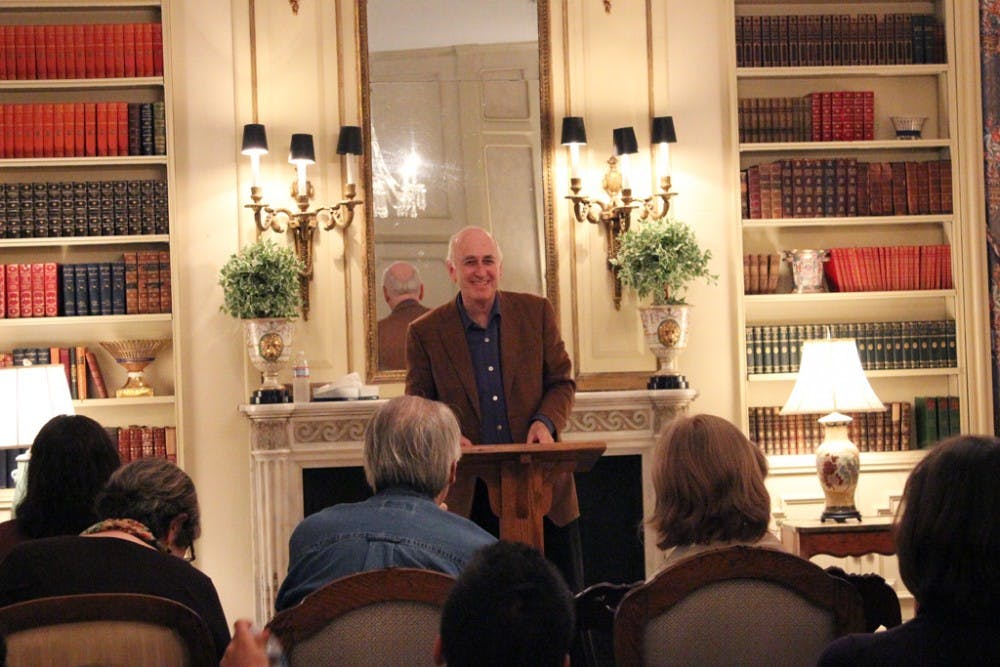Writer and educator Phillip Lopate is the author of the award-winning personal essay collection Portrait of My Body and two novels and collections of poetry. His essays, poetry and film and architectural criticism have appeared in The Best American Short Stories, Vogue, The New York Times and Harvard Educational Review, and he is currently a professor and Nonfiction Director for Columbia University’s MFA writing program. As a Blackburn Visiting Writer in Duke’s English department, Lopate sat down with Recess’ Caitlin Moyles to discuss his 12 years as a writer-in-the-schools, motivation behind personal essays and the skills needed to maintain a versatile writing career.
Recess: What was your first job after graduating from Columbia? Were you a freelance writer?
Phillip Lopate: Well, I was a ghostwriter for a while. I was a ghostwriter for various social scientists, architects, psychologists, that kind of thing. I also worked for an anti-poverty program as a data analyst, so it was all very catch-as-catch-can and very freelance. My first steady work was as a Writer in the Schools, which was then a new opportunity through programs from the state arts council and the federal government that placed writers in schools to work with students. I worked with children in poetry and fiction. And out of that experience I wrote a book called Being With Children, which was an attempt to describe the ups and downs of teaching in an inner-city school in New York City. I taught the kids poetry and fiction and comic books, and made movies with them, and put on plays with them, and started a radio station with them. The idea was to follow out the energy of the kids and create a platform for their interests.
R: Since your 12 years as a writer-in-the-schools, you’ve worked as a professor at different universities and your career as a freelance writer has been on the side?
PL: Right, I never felt that it was owed me to just write. I never felt the world owed me a living, I knew I had to make my own living. I’ve always regarded myself not just as a writer, but as a teacher.
R: What was your first major success?
PL: My fist book was a book of poems. I was drawn into a poetry circle in New York City and wrote a book called The Eyes Don’t Always Want to Stay Open. Then I wrote Being With Children, which was my first book with a major publisher, and my third book was a novel. So I began with poetry, nonfiction and fiction. It’s a good way of avoiding writer’s block if you can write in all different genres. For anyone who wants to become a writer I recommend developing some sub-specialties, some interests.
R: What’s the most valuable skill you have in maintaining such a versatile career?
PL: Curiosity is the most valuable skill. Follow up your interests, be willing to do research. At first I just wrote about things that didn’t require me to get out of the house, now I write more and more about things that require some research and study. I need to learn something.
R: You’re best known for your personal essays. What is the motivation and intent behind a personal essay?
PL: On the one hand, a personal essay is a conversation with yourself in which you’re trying to track your own thoughts. It’s often helpful not to know where you want to go. You allow yourself to digress. It’s a kind of thought experiment. On the other hand, it’s also an attempt to build community with the reader. Very often a personal essay will have a conversational tone, a quality of intimacy and attempt to confide. So there’s a two-track system going on. Teaching students, I tell them to try to cultivate doubt, because I think there’s a lot of interest in contradiction and doubt and paradox, and that’s one of the ways you explore your own thinking. So it becomes a tolerant form for having odd thoughts, even anti-social thoughts.
R: Is it a cathartic art form?
PL: I don’t know if it’s cathartic. It’s analytical, and it’s making friends with your mind.
R: As a professor, what’s your take on the value of a liberal arts education?
PL: I like to be interested in a lot of things and cultivate a range of interests. I’m all for liberal arts education, because you may not know what you want to specialize in at first. A well-educated, cultivated mind is necessary to be a member of a republic. Plus it pays my bills, so I’m all for it.
Get The Chronicle straight to your inbox
Signup for our weekly newsletter. Cancel at any time.

